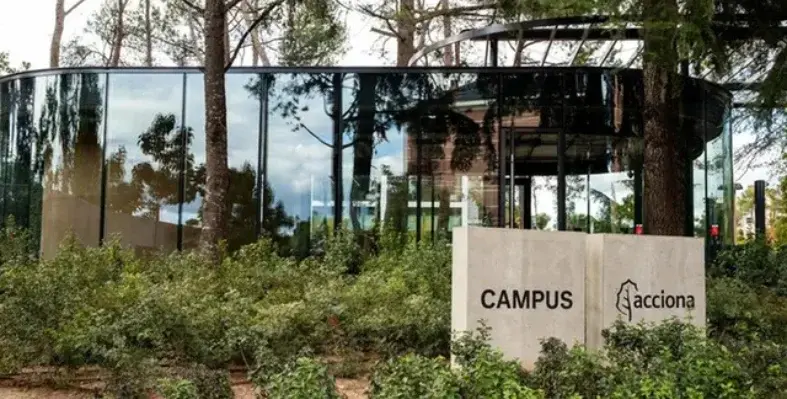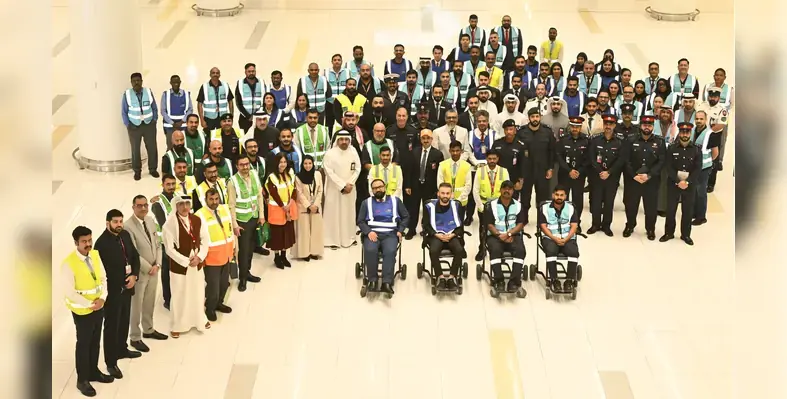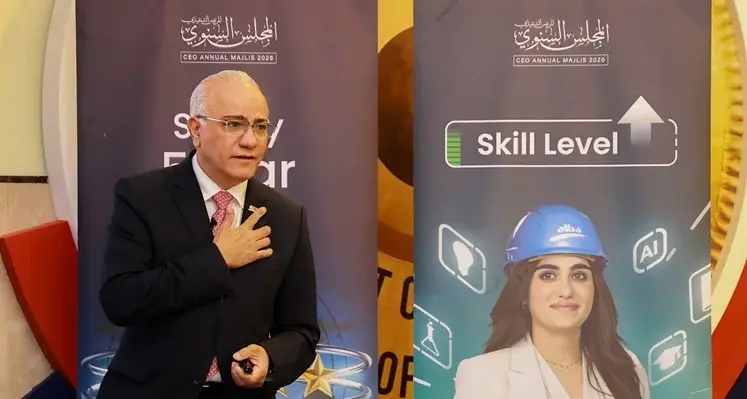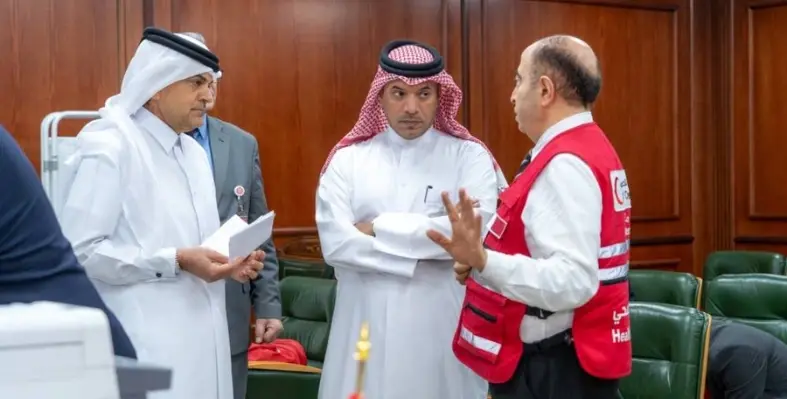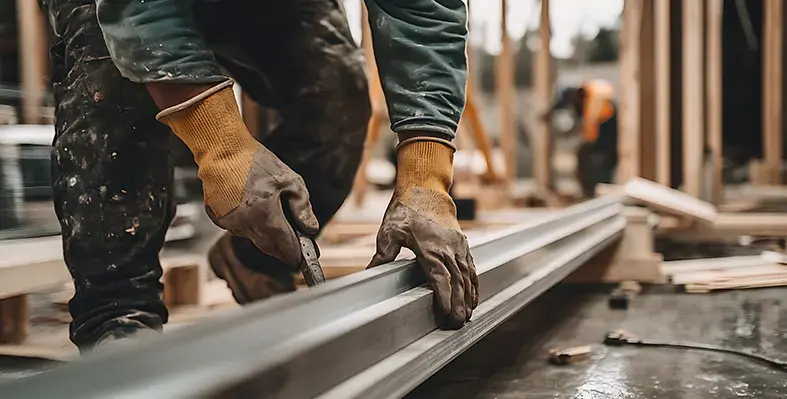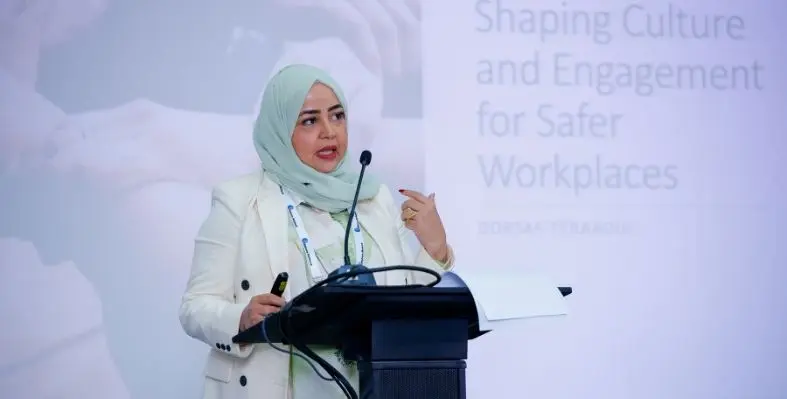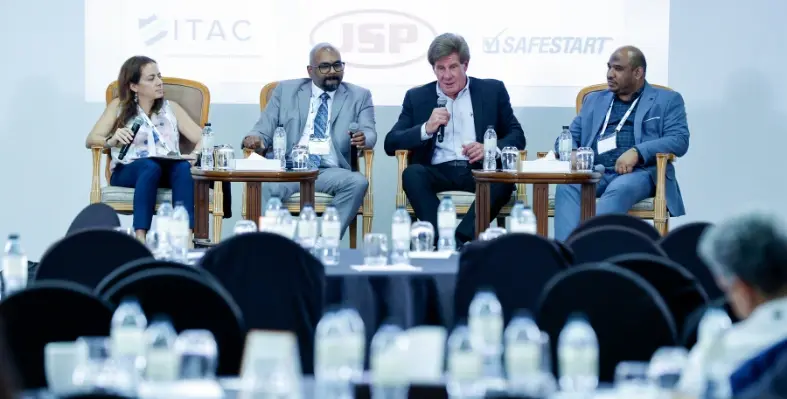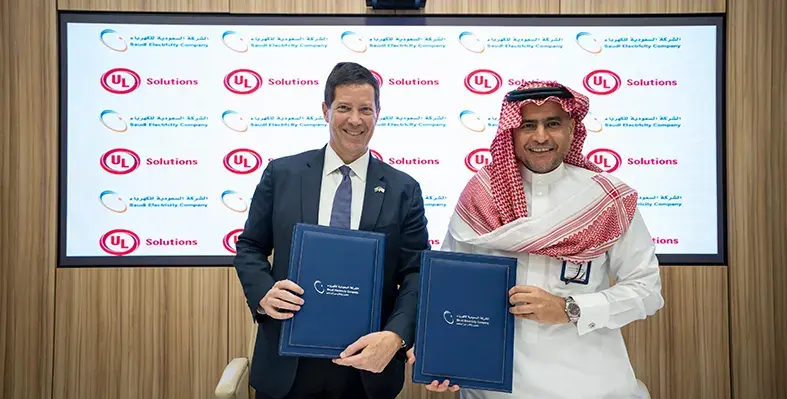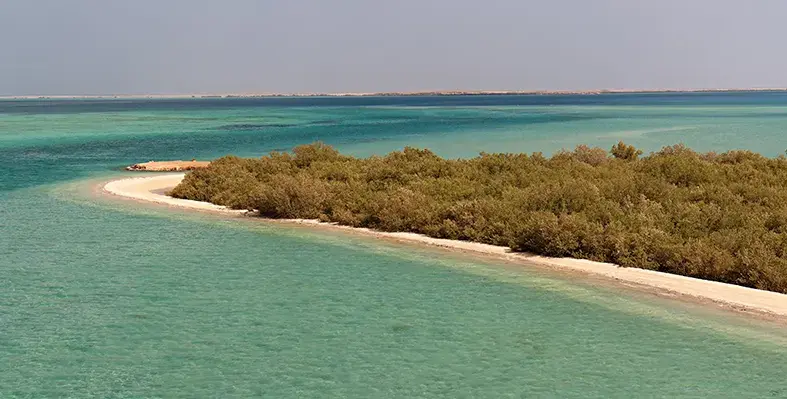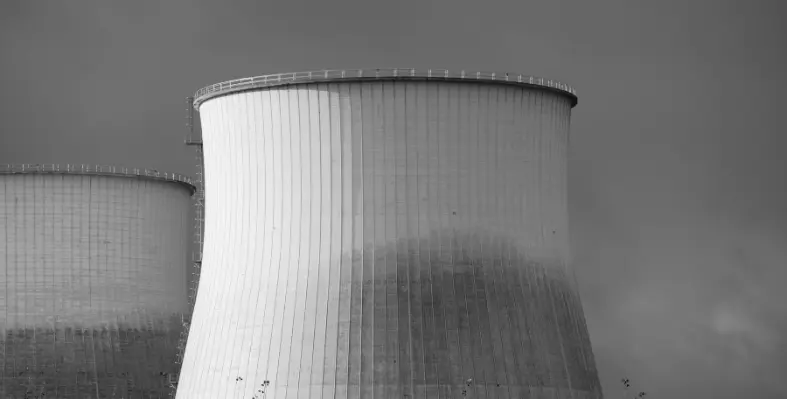Middle East
Middle East
- Topic: HSE
- Region: Middle East
- Date: 20th January 2026
- Year: 2026
ACCIONA has been recognised as a Top Employer in Qatar for the second consecutive year, reinforcing its position as the only Spanish company to renew the certification in the Middle East and underlining its continued growth and consolidation in the region.
The Top Employer 2026 certification is awarded by the Top Employers Institute, one of the most demanding and prestigious global bodies assessing excellence in people management. The recognition acknowledges ACCIONA’s performance across a wide range of human resources practices, including people strategy, work environment, talent acquisition, learning and development, employee well-being, and diversity and inclusion.
ACCIONA’s renewed certification in Qatar reflects the company’s long-term commitment to embedding strong people-focused practices across its operations, particularly as it expands its services and project portfolio in the country. The company said its approach is centred on creating an inclusive, supportive and development-oriented workplace that aligns with both global standards and local priorities.
Beyond the Middle East, ACCIONA has also retained its Top Employer certification across several European and international markets, including Spain and Portugal, alongside Brazil, Mexico, Australia, the United States, Canada, Chile, South Africa, Peru and the Philippines. This broad geographical recognition highlights the company’s consistent global approach to human resources management and its ability to apply the same high standards across diverse operating environments.
These individual country certifications have contributed to ACCIONA receiving the Top Employers North America Seal, which identifies the company as one of the leading employers on the continent. In addition, ACCIONA has been awarded the Enterprise Seal for the second time, a distinction reserved for companies certified in at least 10 countries representing more than 95% of their global workforce. According to the Top Employers Institute, only 12 companies worldwide have achieved this level of recognition.
ACCIONA’s people management strategy is driven by its global PEOPLE plan, which places employees at the centre of the company’s business model. The plan guides the management of more than 68,000 professionals worldwide and focuses on fostering talent development, promoting sustainability, and ensuring inclusive and accessible workplaces.
In Qatar, the PEOPLE plan translates into a strong emphasis on internal talent development, sustainability initiatives, inclusion and accessibility. These pillars support the growth of ACCIONA Service in the country and reinforce the company’s long-term commitment to contributing to Qatar’s economic and social development through a stable and engaged workforce.
- Topic: Training
- Region: Middle East
- Date: 19th January 2026
- Year: 2026
Bahrain Airport Company (BAC), the operator and managing body of Bahrain International Airport (BIA), in collaboration with Bahrain Civil Aviation Affairs, has announced the successful completion of a partial evacuation exercise
The drill was designed to rigorously test the effectiveness of the airport's emergency evacuation plans and ensure the highest level of readiness among all emergency response teams. It involved coordinated efforts among personnel from BAC, Gulf Air Group, Airport Police, the Executive Office of National Disaster Committee, Bahrain Customs Affairs, Nationality, Passports and Residence Affairs, and Bahrain Airport Services.
The simulation provided invaluable insights into operational procedures, communication protocols, and coordination mechanisms during a simulated emergency scenario. The seamless cooperation and collaboration among all entities involved was pivotal to the drill's success, according to BAC.
Mohamed Yousif Alsayed, vice president, Airport Emergency Services, Health, Safety and Environment at BAC, said, "The safety of our passengers, personnel, and stakeholders remains our utmost priority. Conducting such comprehensive exercises is fundamental to our commitment to operational excellence and emergency preparedness. This drill not only tested our plans under pressure but also strengthened the invaluable partnerships that are crucial for ensuring a swift and effective response to any potential incident at Bahrain International Airport."
This initiative is a core component of BAC’s ongoing strategy to continually evaluate, refine, and enhance its safety and security protocols, with a commitment to maintaining the highest international standards.
- Date: 15th January 2026
- Year: 2026
The National Cyber Security Center (NCSC) of the Kingdom of Bahrain and SandboxAQ, a global leader in AI-driven cybersecurity and cryptographic management, have announced a landmark partnership to establish a nationwide cybersecurity modernisation framework. The collaboration represents one of the world’s first large-scale initiatives to transition towards a quantum-safe economy, addressing emerging threats from quantum computing and advanced cyber attacks.
As a founding member of the UNICC AI Hub on Post-Quantum Cryptography (PQC), SandboxAQ will assist Bahrain in securing sovereign data, critical infrastructure, and sensitive government and private-sector systems. The partnership aims to protect against rapidly evolving cyber, cryptographic, and quantum computing threats, ensuring Bahrain’s digital assets remain resilient in the face of future technological developments.
The announcement comes amid growing global concerns about “Q-Day,” the point at which cryptographically relevant quantum computers (CRQCs) will be capable of breaking today’s widely used encryption. While experts project that CRQCs could be viable as early as 2029, the risk is already present through “harvest-now, decrypt-later” attacks. Such attacks involve stealing encrypted data today with the intention of decrypting it once quantum capabilities advance. For governments, this threat encompasses classified communications, diplomatic cables, defence information, national identity records, and decades of sensitive archives.
Under the partnership, Bahrain will deploy SandboxAQ’s AQtive Guard platform, an AI-powered cybersecurity solution designed to enable the safe, large-scale deployment of AI agents while modernising defences for the post-quantum era. The platform provides comprehensive visibility, assessment, and remediation of critical vulnerabilities resulting from weak encryption and the proliferation of AI agents and non-human identities (NHIs). The deployment will cover more than 60 ministry environments across the Kingdom, requiring the platform to manage cryptographic security on a national scale.
His Excellency Shaikh Salman bin Mohammed Al Khalifa, CEO of the NCSC, said, “This partnership with SandboxAQ marks a significant milestone in our mission to secure our sovereign data, intellectual property, and other digital assets from both internal and external cyber threats. SandboxAQ’s world-class technologies and expertise in AI-driven cybersecurity will help Bahrain protect its citizens, businesses, and government agencies and lay the foundation for a new era of security and economic growth in the Kingdom.”
Mohammed Aboul-Magd, Vice President of Product, Cybersecurity at SandboxAQ, added, “Bahrain is taking a bold and much-needed step by not only setting policy, but by operationalising the technology required to secure the Kingdom against rapidly advancing threats. Our partnership establishes a dynamic framework that allows the country to adapt quickly as new vulnerabilities emerge, ensuring the nation stays ahead of attackers in a world where cryptographic risks evolve by the day. We are honoured to support Shaikh Salman and the Government of Bahrain in implementing this forward-looking programme, which sets a new benchmark for cyber resilience across the region.”
The initiative forms a central pillar of Bahrain’s long-term cybersecurity strategy, reinforcing the Kingdom’s commitment to safeguarding national data, promoting economic resilience, and advancing secure digital transformation.
- Topic: HSE
- Region: Middle East
- Date: 14th January 2026
- Year: 2026
Aluminium Bahrain B.S.C. (Alba) has set safety and upskilling as top priorities for 2026
At its Annual Majlis 2026 sessions held on 12 January, Alba’s CEO Ali Baqali unveiled Alba’s objectives for 2026: Safety 5 Star, Think Global, e-F Al Hassalah, and Skill Level Up. These priorities aim to drive Alba’s operational excellence, strengthen financial discipline and position the company for sustained growth, according to a company statement.
CEO Ali Al Baqali said, “As we step into 2026, our focus is clear: driving world class safety excellence and best-in-class behaviours across all our operations; expanding beyond our comfort zone to explore new markets and opportunities; accelerating efficiencies and financial discipline through the last phase of e-Al Hasalah; and investing in our people with Skill Level Up for the future. These priorities will guide us as we continue to lead, inspire and transform.”
The inaugural session, attended by Alba’s executives, directors, managers and supervisory staff highlighted key performance milestones from 2025 and outlined the strategic direction for the year ahead.
Two more sessions of Alba’s Annual Majlis – which stands for “yearly gathering or forum” in Arabic – will be held throughout the week in a hybrid format, ensuring accessibility for employees across all sites and shifts. This initiative is designed to foster open dialogue between the company’s management and employees, promoting transparency, collaboration, and alignment on shared goals.
Alba has a longstanding commitment to health and safety and an outstanding safety record. This is reflected in a number of safety achievements this year, including the milestone of over 42 million work hours without a Lost Time Injury (LTI) in December 2025, marking an unprecedented two consecutive years of LTI-free operations - a first in the company’s five-decade history. The company’s commitment to cultivating a world-class safety culture for its workforce has been recognised this year with the award of the ‘Excellence in Safety’ Award from the Lifting Equipment Engineers Association (LEEA), Royal Society for the Prevention of Accidents (RoSPA’s) President’s award for the third consecutive year, British Safety Council 2025 International Safety Award and several major awards from the USA’s National Safety Council (NSC).
- Date: 14th January 2026
- Year: 2026
Qatar International Islamic Bank (QIIB) hosted a Health Day for its employees at the Bank’s headquarters, in partnership with Qatar Red Crescent, reinforcing an ongoing collaboration between the two organisations.
Held at the end of December 2025, the initiative aimed to raise awareness about common health issues, promote daily wellness practices, and encourage employees to adopt a sustainable, healthy lifestyle. The event also formed part of QIIB’s broader commitment to enhancing occupational safety standards well into 2026.
Employees from across the Bank’s departments and divisions actively participated in the Health Day, reflecting QIIB’s dedication to fostering a workplace that prioritises public health, prevention, and self-care. The programme included a series of interactive medical screenings designed to increase health awareness and enable employees to take proactive steps towards well-being. Screenings offered during the event included blood pressure checks, blood sugar testing, body mass index (BMI) measurements, and vision assessments, along with specialised health consultations tailored to individual needs. These activities provided employees with a clear understanding of their current health status and practical guidance on improving their lifestyle habits.
Commenting on the initiative, Ali Hamad Al-Mesaifri, Chief of Human Resources and Administration at QIIB, said, “We organised this Health Day because we believe that good health is essential to building a stable and sustainable institution. A healthy employee is better equipped to contribute, innovate, and perform, which in turn enhances overall work quality and the work environment. Our focus on the health and well being of all employees also supports Qatar National Vision 2030, which highlights the importance of health as a key pillar of human development.”
He added, “At QIIB, we are keen to adopt impactful initiatives that raise health awareness and encourage our employees to take care of their daily well-being, not only through medical check-ups, but also by promoting a culture of prevention and supporting a healthy, balanced lifestyle.”
Al-Mesaifri emphasised the significance of the partnership with Qatar Red Crescent, noting, “Our collaboration with Qatar Red Crescent reflects the Bank’s commitment to partnering with leading national institutions known for their extensive expertise. Initiatives like this demonstrate QIIB’s dedication to its social responsibility toward its employees and its ongoing efforts to provide a work environment that supports both physical and mental well-being.”
Concluding his remarks, he said, “We hope this initiative will encourage our employees to take full advantage of the screenings and consultations offered, and to continue prioritizing their health. QIIB remains committed to organizing similar health-focused initiatives that align with our institutional vision.”
Through events such as this Health Day, QIIB continues to reinforce a culture of health, prevention, and employee well-being, integrating these values into its organisational ethos.
- Topic: HSE
- Region: Middle East
- Date: 11th January 2026
- Year: 2026
A new research report explores the implications of Saudi Arabia’s artificial intelligence (AI) ambitions and its intersection with the workforce.
The report, by Alexander Ash Consulting and the Saudi British Joint Business Council (SBJBC), highlights how the kingdom is investing over US$100bn to become a global AI leader.
As part of this, Riyadh has secured access to advanced US semiconductors, signed landmark partnerships with the likes of xAI, AMD, Cisco and Qualcomm, and is building 6.6 gigawatts (GW) of data centre capacity.
“Yet the binding constraint on these ambitions is not capital or infrastructure,” the report notes. “It is people.”
As part of the nation’s AI blueprint, this means integrating workforce into long-term planning.
The report examines how the kingdom is now nurturing the workforce required to operate, manage and innovate such AI systems at scale.
It also analyses Saudisation requirements, training programme outcomes, Arabic language AI development, retention challenges and the layered workforce structure needed to translate infrastructure investment into sustainable competitive advantage.
Crucially, the next few years through to 2030 mark a “critical window” ahead, the report suggests.
“The workforce of the future in Saudi Arabia will reflect choices made in the present,” it states.
“Investment in broad-based digital literacy creates a population comfortable with technology. Development of advanced technical specialists enables indigenous innovation. Training of business translators ensures technical capabilities serve commercial and social objectives. Building robust governance frameworks protects against risks whilst enabling experimentation.”
Each of these components contributes to an ecosystem where AI serves national development goals rather than simply generating returns for foreign technology companies, the report adds.
According to World Economic Forum research, AI augmentation increases productivity substantially when implemented thoughtfully, but can reduce quality and employee
satisfaction when poorly executed.
“The difference often lies in how organisations, government and academia manage the human side of implementation rather than technical system design.”
- Topic: Industrial
- Region: Middle East
- Date: 9th January 2026
- Year: 2026
Saudi Arabia has signed a memorandum of understanding (MoU) aimed at boosting worker rights in the kingdom and in support of a “fair and safe work environment”.
Minister of Human Resources and Social Development, Ahmed Al-Rajhi, and Human Rights Commission (HRC) president, Dr Hala Al-Tuwaijri, signed the agreement in Riyadh in early January, the Saudi Gazette reported, with the aim of promoting and protecting human rights in the kingdom.
“The MoU seeks to support a fair and safe work environment and strengthen organisational practices that comply with national regulations and standards, ensuring justice and transparency for all parties involved in the labour market,” the Saudi Gazette report noted.
No further details of the contents of the agreement were released.
Minister Al-Rajhi and HRC chief Al-Tuwaijri also emphasised that the signing of the deal reflected their shared commitment to unifying national efforts and enhancing institutional cooperation on human and social issues, according to the Saudi Gazette report.
The move underscores the evolution of Saudi Arabia’s labour market ecosystem, as policy, governance and people practices become more integrated in support of long-term strategic and economic goals.
“The agreement aligns with the objectives of Saudi Vision 2030, contributing to the development of the labour market, improving compliance and safeguarding rights through effective regulatory frameworks and approved policies,” the Saudi Gazette report added.
- Region: Middle East
- Date: 9th January 2026
- Year: 2026
As health safety environment (HSE) continues to gain traction in the corporate world, its definition has evolved over time and looks very different today from how it used to be over a decade ago.
There are still gaps to be addressed, however. And one such grey area was recently addressed at the HSE MENA forum, when Dorsaf Teraaoui, Senior HSE Manager at Dubai Holding Asset Management, highlighted the importance of leadership in HSE.
“A very important quality in leadership is to never be afraid of changing. Leaders must understand that its not about the message but how we say or convey it,” she said.
The ability to influence is what differentiates leaders from managers. HSE specialists aren’t in a position to play the victim. Teraaoui raised questions, asking, “How much are we influencing? We should ask that question to ourselves as well, not only questioning the top management… We should be also having certain qualities as leaders to influence and to make the change happening. And that's why leadership matters in HSE.”
“If we dont have a proper foundation of leaders we wont be able to take decisions and deal with the consequences,” she said.
Teraaoui explained that Dubai Holding Asset Management is part of the Dubai Holding Group that was founded in and operates out of Dubai. Some of its sister brands, such as the Jumeirah Group, went on to expand globally. Malls such as Dragon Mart, Ibn Battuta, Palm Jumeirah and the luxury waterfront living project called Palm Jebel Ali are all associated with the Dubai Holding Group.
The role of Dubai Holding Group’s asset management division thus expands beyond addressing only employee safety, to deal with much bigger numbers, involving visitors, clients, customers and residents.
To foster leadership and safety culture for every stakeholders involved, the organisation pushes the boundaries of training and engagement for just employees. It facilitates HSE conferences in a much bigger scale that also includes its CapEx contractors and fit-out contractors. While they are not direct contractors, and contractors hired by the organisation’s tenants, it still imparts safety awareness for everyone out of moral responsibility. Such addresses are directed to the top management first, as health and safety comes from top to bottom and not the other way round.
Emergency preparedness in malls are addressed through training, and regular inspections are conducted on all retail units and tenants to ensure universal compliance of health and safety standards. These sessions not only address but also ensure practical applications for kids’ safety; the company has engineering controls installed on windows, for instance.
Elaborating on its leadership culture, Teraaoui acknowledged good governance on part of the company’s Group CEO. Each and every asset of the company are taken into account when it comes to risk assessment.
Establishing a case in point, Teraaoui mentioned that following the Nakheel and Dubai Holding Group merger in 2024, as many as 18 HSE critical risks were identified from one of the most prestigious assets. Following assesment, these were brought down to four, and the company continues to work on mitigating all the remaining risks by this year. This remains a time-incentive task also because it is a critical aspect in entering the listing stage, which is currently an important objective for the company.
- Date: 8th January 2026
- Year: 2026
At the HSE MENA 2025 conference, an illuminating panel session brought together distinguished leaders: Larry Wilson (CEO and author of Safe Start), Binu Kalarickan (Director of Permits & Regulations | Permits & Regulations, Government of Ras al Khaimah), Suresh Kumar (CEO, ITAC Safety and Environmental Consultants), and Lara El Saad (Director, Subscribers Development, MENA, Benchmark Gensuite®), to discuss the impact of emerging technologies on Health, Safety, and Environment (HSE) practice.
Lara El Saad opened the discussion by emphasising the importance of approaching technological change in HSE with open minds. She noted that technologies such as artificial intelligence (AI), the Internet of Things (IoT), and predictive analytics are pivotal in moving organisations from reactive to predictive safety management. However, she acknowledged initial fears around privacy and control, urging the audience to focus on the core objective: “to reduce workplace injuries and ensure everyone goes home safely.” This, she asserted, remains the heart of predictive analytics, harnessing data not for surveillance, but for safeguarding lives.
Suresh Kumar highlighted the rapid progression of these technologies within HSE. He observed how organisations increasingly adopt AI and IoT for training, monitoring, and hazard detection, though many still face challenges integrating platforms and ensuring data quality. Suresh also referenced daily examples, such as the use of thermal imaging for hazard identification during the COVID-19 pandemic, and underscored the need for robust user training and awareness programmes to make technological adoption genuinely effective.
Binu Kalarickan addressed the practical challenges and the sociotechnical implications of emerging tools. He noted the expense and market concentration of advanced equipment such as drones, but also pointed out the essential role of reliable, tested technology—particularly in critical applications like emergency wearables. Binu candidly discussed the human adaptability dimension: while technology can enhance oversight, it must not supplant the human responsibility inherent in safety roles, nor should it create complacency.
Larry Wilson brought a pragmatic perspective. He warned that the rush to deploy new technologies can lead to employee apprehension and misuse if organisations neglect piloting, proper training, and honest communication. Drawing from both theory and personal experience, Larry urged for small-scale pilots to “get the kinks out” before wide implementation. He also reminded the audience that technology should amplify, not replace, human judgement and vigilance—a sentiment echoed throughout the session.
In summary, the panel at HSE MENA 2025 agreed: while AI, IoT, wearables, and other advanced technologies hold immense promise, their success relies on planning, pilot testing, education, and, above all, a retained focus on the human element in safety culture.
- Date: 5th January 2026
- Year: 2026
- Date: 5th January 2026
- Year: 2026
As part of its efforts to develop and regulate coastal tourism, the Saudi Red Sea Authority (SRSA) has issued Beach Operators’ Requirements and Conditions, ensuring organised activity, protection of the marine environment, and visitor safety.
The move comes as Saudi Arabia seeks to massively upgrade its tourism infrastructure and appeal to international visitors.
SRSA said in a statement that the rules mark a “qualitative step” toward activating beaches as key economic enablers and supporting the development of sustainable coastal tourism along the western coast of Saudi Arabia.
The guidelines are the first of their kind in the kingdom, it added.
“These requirements serve as a comprehensive operational and regulatory framework for issuing beach operation licenses,” the SRSA statement noted.
“They define conditions related to security, safety, public health, and environmental protection, establishing a new phase governed by high-quality standards aligned with international best practices and experiences.”
It added that the framework aims to deliver an “optimal beach experience” for visitors and, in the long term, enhance service quality, safety standards, beach sustainability, marine environmental protection, and overall attractiveness.
The requirements are designed to act as an official reference for operators seeking to develop or operate beaches.
This initiative comes as part of the authority's mandate to regulate coastal tourism activities and in fulfilment of its core roles and responsibilities, which include developing policies, strategies, plans, programmes, and initiatives necessary to regulate activities and services, establish controls, rules, and standards and ensure the protection of the marine environment.
The requirements and conditions also cover beach design, development, and construction in accordance with the Saudi Building Code, ensuring compliance with architectural and structural standards.
They further include accessibility requirements for persons with disabilities, adherence to security, safety, and environmental systems, and compliance with the highest quality standards and specifications in line with the Blue Flag eco-label for beaches.
Additionally, the framework outlines the licensing process for beach operation, which includes several key requirements such as: a valid commercial registration, an environmental operating permit, marine zoning and planning approval, a beach safety plan, and an assessment of the beach's carrying capacity.
“Operators are also required to comply with security, safety, and public health obligations, including the separation of swimming areas from other marine activities, provision of essential safety and rescue equipment, installation of clear signage, and the availability of trained lifeguards,” the statement added.
“The requirements further impose strict environmental controls, including the prevention of pollutant discharge, effective waste management, the use of environmentally friendly materials, activation of environmental monitoring mechanisms, and immediate reporting of any environmental incident to preserve ecological balance.”
According to SRSA, the guidelines will enter into force on 31 January, 2026 although existing beach operators will be granted a one-year grace period.
- Region: Middle East
- Date: 2nd January 2026
- Year: 2026
Saudi Arabia and Bahrain have reaffirmed their close strategic partnership following the fourth meeting of the Saudi-Bahraini Coordination Council, co-chaired by Saudi Crown Prince and Prime Minister Mohammed bin Salman and Bahrain’s Crown Prince and Prime Minister Prince Salman bin Hamad Al Khalifa in Manama.
The meeting was held in line with the directives of Custodian of the Two Holy Mosques King Salman bin Abdulaziz and Bahrain’s King Hamad bin Isa Al Khalifa, underscoring the long-standing political, economic and social ties between the two neighbouring countries. Senior officials and heads of joint committees from both sides attended the session.
At the start of the meeting, Prince Salman bin Hamad welcomed the Saudi Crown Prince, highlighting the strength of bilateral relations and the deep bonds between the two leaderships and peoples. Prince Mohammed bin Salman expressed his pleasure at visiting Bahrain and meeting with King Hamad and the Bahraini Crown Prince, stressing King Salman’s continued support for strengthening cooperation and expanding joint action across a wide range of sectors.
The meeting was marked by the signing of a series of agreements and memoranda of understanding aimed at deepening collaboration in key strategic areas. These included an MoU on nuclear safety and radiation protection between Saudi Arabia’s Nuclear and Radiological Regulatory Commission and Bahrain’s Supreme Council for Environment, as well as a cooperation programme between the two countries’ diplomatic studies institutes.
Economic cooperation featured prominently, with agreements signed on the avoidance of double taxation, the promotion and protection of competition, sustainable development cooperation, and the promotion of direct investment. Additional MoUs were concluded covering rail transport cooperation, higher education partnerships between King Saud University and the University of Bahrain, and collaboration in developing the non-profit sector.
Together, the agreements reflect a broad and integrated approach to bilateral cooperation, spanning energy, environment, education, transport, investment, diplomacy and social development. They also align with both countries’ national development priorities and long-term economic diversification strategies.
At the conclusion of the meeting, Crown Prince Mohammed bin Salman thanked Prince Salman bin Hamad for the warm reception and the effective organisation of the council session, praising the constructive outcomes achieved. Both sides reaffirmed their commitment to advancing the distinguished Saudi-Bahraini partnership and expressed their shared aspirations for continued security, stability and prosperity.
The two leaderships also extended their appreciation to committee members, the Executive Committee, the General Secretariat and working groups for their efforts in supporting the council’s work. It was agreed that the fifth meeting of the Saudi-Bahraini Coordination Council will be held in Saudi Arabia, with the date to be determined by the council’s general secretariat.
